Past Projects
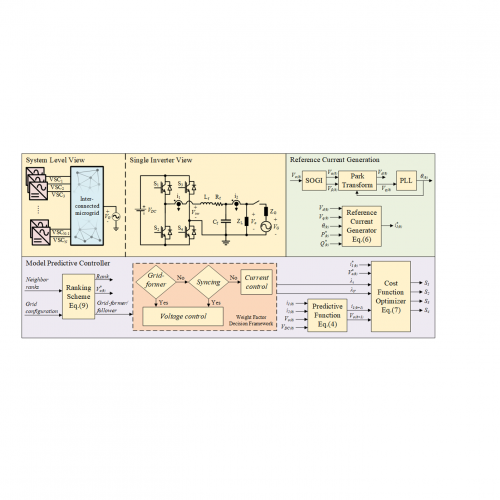
Rank-based Predictive Control for Community Microgrids with Dynamic Topology
This research proposes an intelligent, rank-based MPC for distributed VSCs operating in a reconfigurable microgrid with dynamic boundaries and MPCC.
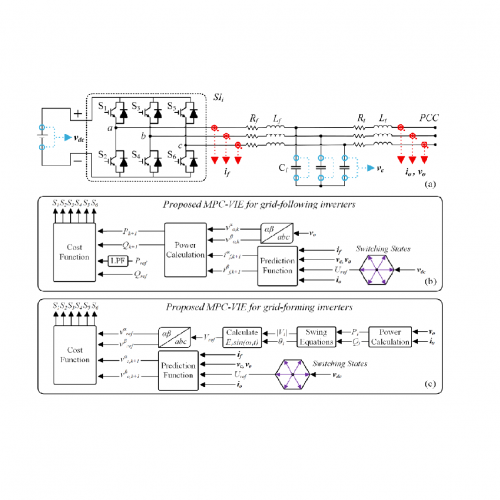
Virtual Inertia Emulation in Power Electronics-Dominated Gird via Model Predictive Control
This research proposes a virtual inertia emulation (VIE) scheme suitable for grid-following and grid-forming while considering the interaction between multiple inverters in a PEDG.
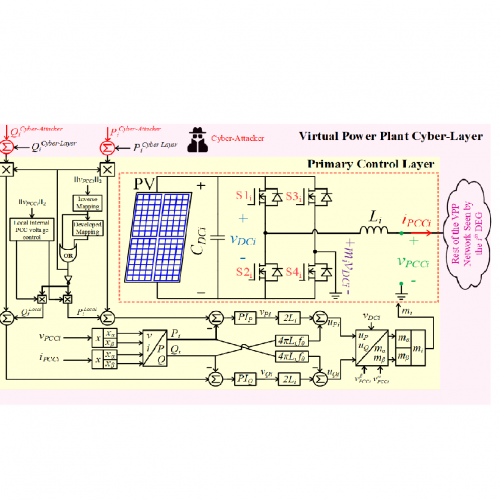
Real-time Intrusion Detection System for Virtual Power Plants
This work improves the cybersecurity of a VPP. Explicitly, by detection of a cyber-attacker manipulating the VPP cyber layer operation set-points gradually to violate network stability bound.
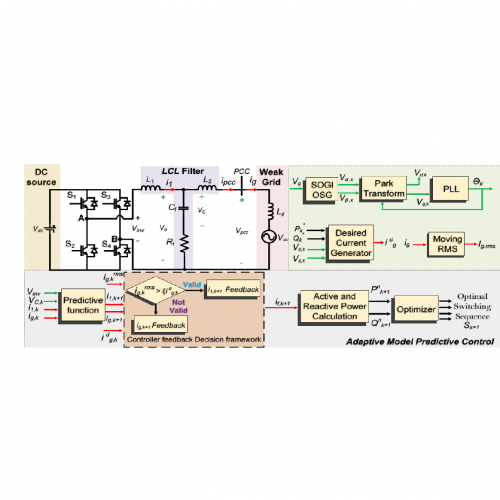
Grid-Interactive Inverter with Resonance Suppression based on Adaptive Predictive Control in Weak Grid Condition
This project proposes an adaptive model predictive control (AMPC) scheme for the resonance suppression of LCL filter-based inverters interacting with weak grids.
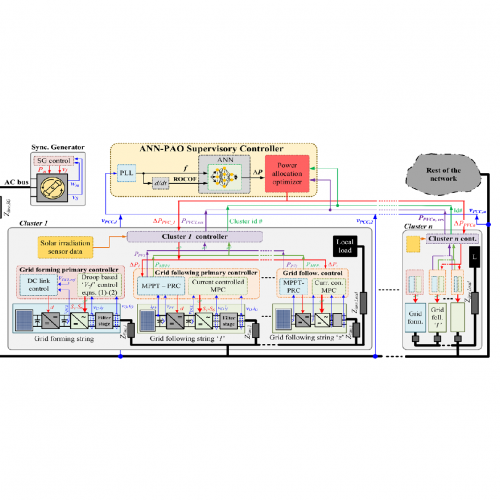
Artificial-intelligence-inspired Frequency Regulation in Power Electronics Dominated Gird via Distributed Power Reserve Control
The frequency regulation approach via ANN reduces the economic burden as well as provides a fast dynamic response in the system. Furthermore, ancillary services like fault-ride-through capability are attainable too. Thus, this project focuses on implementing adaptive distributed power reserve control for PVIs deployed as clusters in a PEDG network.
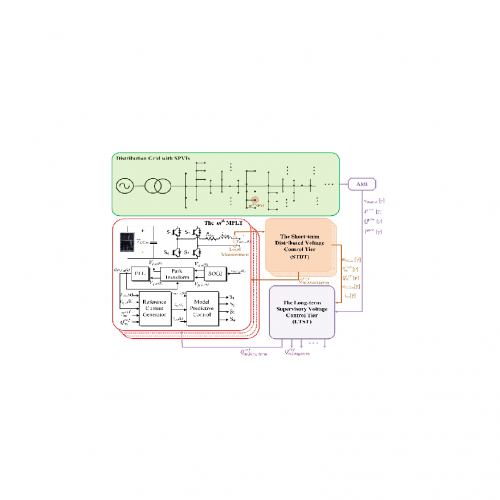
Multitimescale Three-Tiered Voltage Control Framework for Dispersed Smart Inverters at the Grid Edge
This project proposes a multi-timescale three-tiered voltage control framework for dispersed SPVIs at the grid edge. The proposed solution ensures grid connectivity of the distributed generators during fast voltage boundary violations, while guaranteeing optimal operation of the entire system.
Lab projects 2
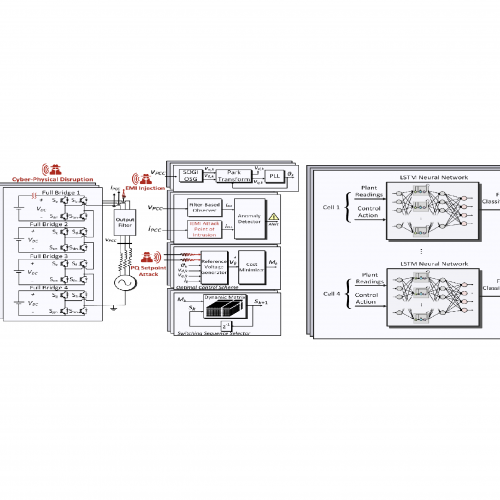
Proactive Intrusion Detection in the PEDG
Alongside all cyber-physical threats, which wait in ambush to impose some destructive impacts into the power grid, ordinary failure of the smart devices (e.g., smart inverters) has high chances of occurrence. To make sure that the grid operation and supervisory controller make accurate decisions based on what is actually happening on the physical layer of the grid, an accurate diagnosis algorithm is needed to differentiate the potential attacks from an ordinary inverter failure. This project proposes a proactive detection framework for cyber-physical intrusions, which has the capability of adopting corrective control actions in response to anomalies on grid-interactive smart power electronics.
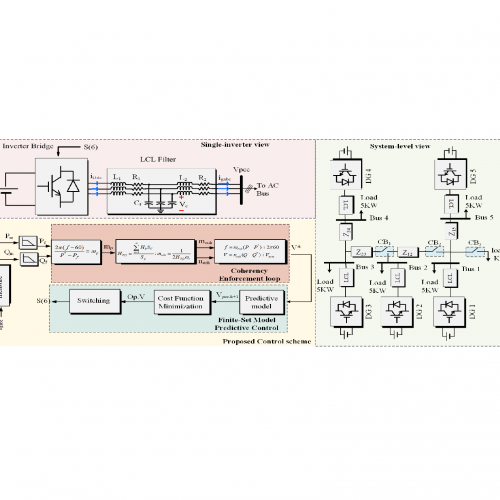
Homogeneity Realization for Cluster of Grid-forming Inverters
The goal of this project is to acquire homogeneous dynamic characteristics via coherency enforcement control to aggregate the cluster of grid-forming inverters into the single equivalent model. The homogeneity in the dynamic response of the grid-forming inverters is realized by autonomously identifying and emulating equivalent inertia.
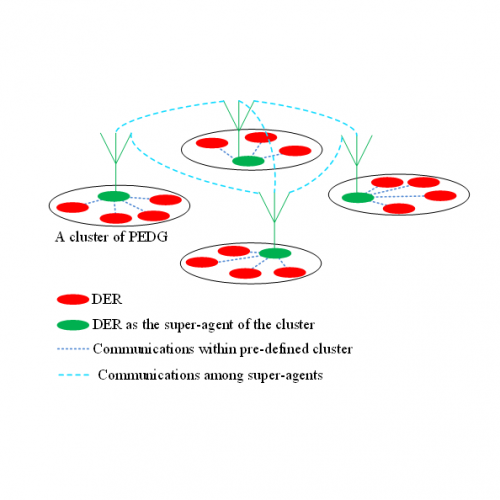
Multi-agent self-learning control architecture in response to cyber-physical attack
This project developing techniques to make sure the entire grid is resilient to all possible anomalies, the grid, and all existing pieces need to operate as a living ecosystem, for instance, an “ant colony”. Each smart inverter has intelligence and observes its own situation. All smart inverters operate in their own interest, but also in case of an anomaly, they cooperate harmoniously to mitigate the problem.
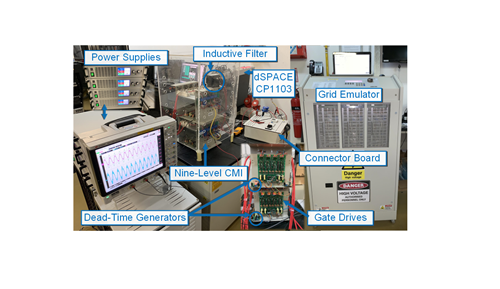
Computationally-efficient Optimal Control of Cascaded Multilevel Inverters
This project proposes an optimal current control technique with switching event minimization for grid-interactive cascaded multilevel inverters (CMI) interfaced with battery energy storage sources. The proposed control scheme enables the power-balancing functionality of battery cells, realizing the optimal smart operation of CMI.